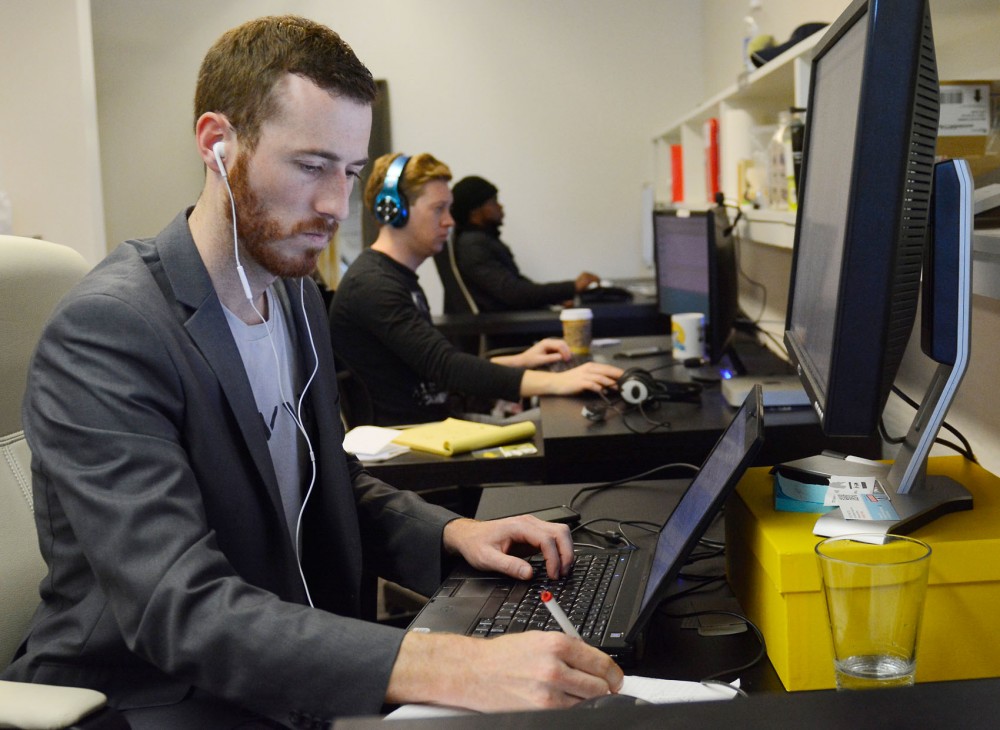Flat screen TVs, bikes and mopeds are items that many college students may consider essential, but they may not fall in a typical college student’s price range.
And businesses haven’t shied away from the challenge of finding a way for young consumers to share the costs of or share the possessions they already own.
Driven by the emergence of a sharing economy and the idea of collaborative consumption, businesses like ride- and product-sharing apps are sprouting up across the nation. This industry targets tech-savvy urban millennials and cash-strapped college students who business owners say take advantage of the services to consume less and save money.
“It’s all about sharing of resources,” said Mallory Kurkoski, founder and president of Dishcourse, a Minneapolis-based food-sharing business, and a part-time MBA student at the University. “They get connection to a community of people who care about something they also care about.”
On Monday, a new service launched in Minneapolis that aims to divvy up the costs associated with purchasing items among a group of people that might be unaffordable or unpractical for one consumer alone.
The service, a web app named Divvy, enables purchases between friends, family or strangers who want to collectively buy and own certain products, such as big-ticket items like canoes or mopeds. The online app makes the purchase and then helps coordinate how that item will be shared among the owners.
“There’s a massive move toward people hoping to live more collaboratively,” said Micah Kulish, head of Divvy’s marketing and brand development. “Rather than having all this stuff that you have full responsibility over, we see Divvy as way for people to purchase with others around them.”
While its platform allows users to purchase and own an item with a group of people, Kulish said the app is still is a product of the sharing economy concept.
Lauren Capelin, chief information officer for Collaborative Lab — a consulting company that works with government and business leaders to help them see the usefulness of sharing economy ideas — said this concept has thrived since the recession left young people looking for cheaper and more efficient ways to consume.
“We also were being presented with environmental challenges worldwide, making us realize that we couldn’t continue to produce and consume the way we had for the previous decades,” she said.
Although users and sharers may both benefit financially from participating in a sharing-based business, that isn’t why these concepts have flourished, said Andrew Batey, chief marketing officer of California-based Spinlister, a peer-to-peer bike rental company.
“It was technology,” he said, adding that people have always participated in a sharing culture. “Everyone has always shared, but technology has created that situation to make sharing more scale-able.”
While these services are popping up in cities across the country, Kurkoski said, policymakers are still unsure of how to regulate them.
“You don’t necessarily want to stifle that type of innovation and creativity,” she said. “You want to make sure you protect the public but at the same time not kill business models that might be the wave of the future.”
Insurance providers may also be reluctant to offer the startup businesses coverage, said Capelin and Kurkoski, who said she is also an avid user of many collaborative consumption platforms.
There are also concerns over how safe the products are.
Collaborative consumers have to put their trust in people they may not know, Kurkoski said, possibly putting them at risk.
But regardless of the downfalls and hurdles that sharing businesses and users may encounter, “the sharing economy isn’t going away,” Kurkowski said.
“If anything, it’s going to keep getting bigger,” she said.








